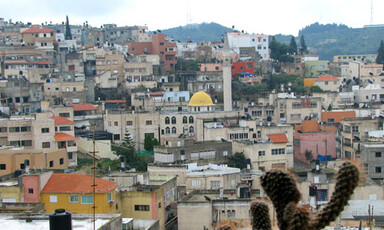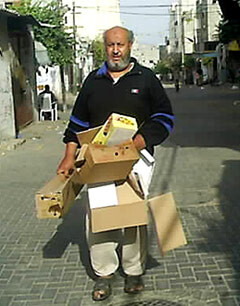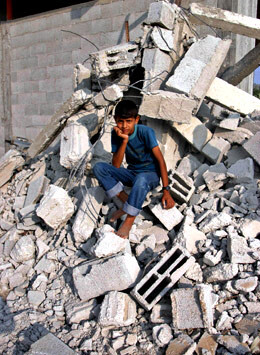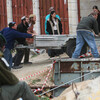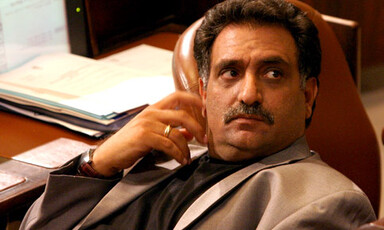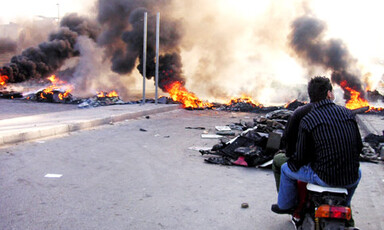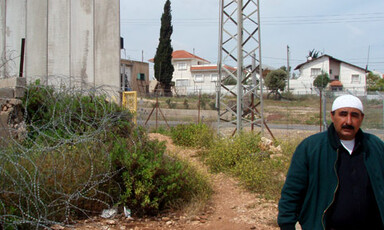
"They will not break me"
Mas'ha, Palestine 3 May 2007
Hani Amer lives with his wife and six children in the village of Mas’ha in Qalqilya district. His six-year-old son is the youngest child. According to Hani, since the 1970s Israel has confiscated at least 7,000,000 square metres — eighty percent — of the land of Mas’ha, to build the illegal Jewish settlement of Elkana. Until now Hani Amer and his family have resisted all attempts by the Israeli military and settlers to chase him away. Today their house has completely surrounded by the wall and high fences. The family exhausted all its resources in its resistance to the wall, but Hani Amer is determined to stay. Read more about "They will not break me"
